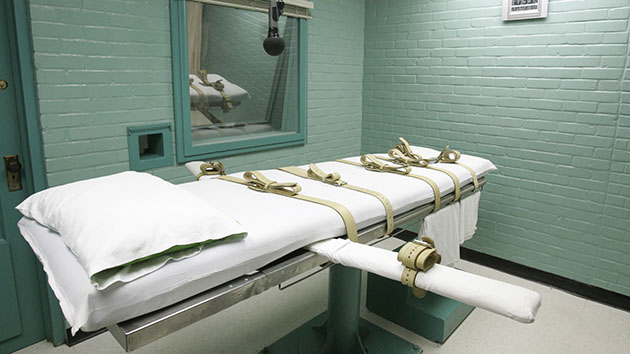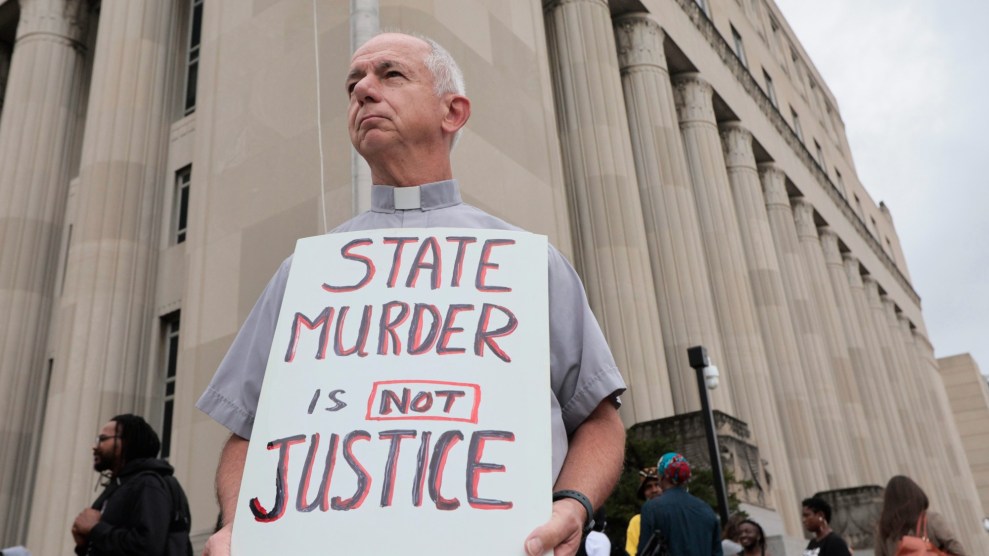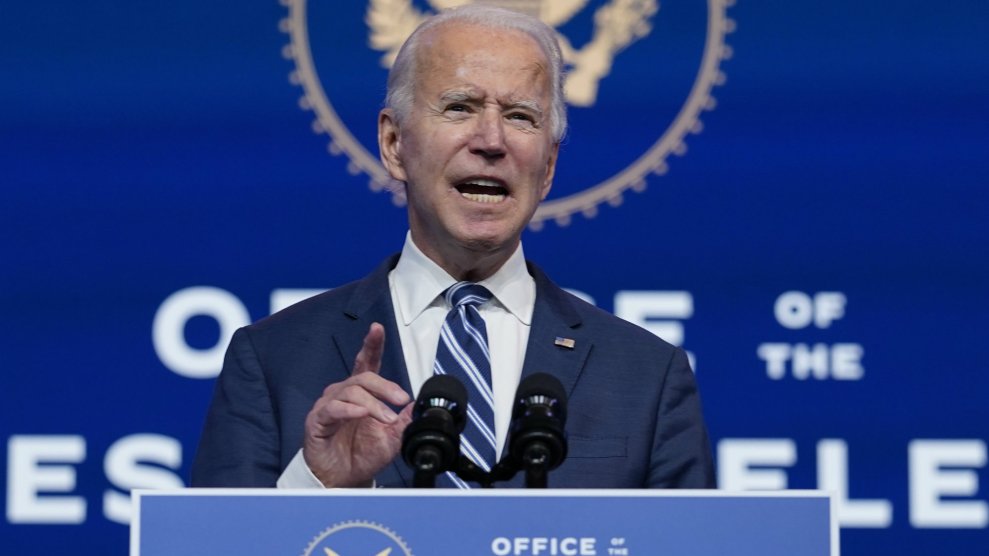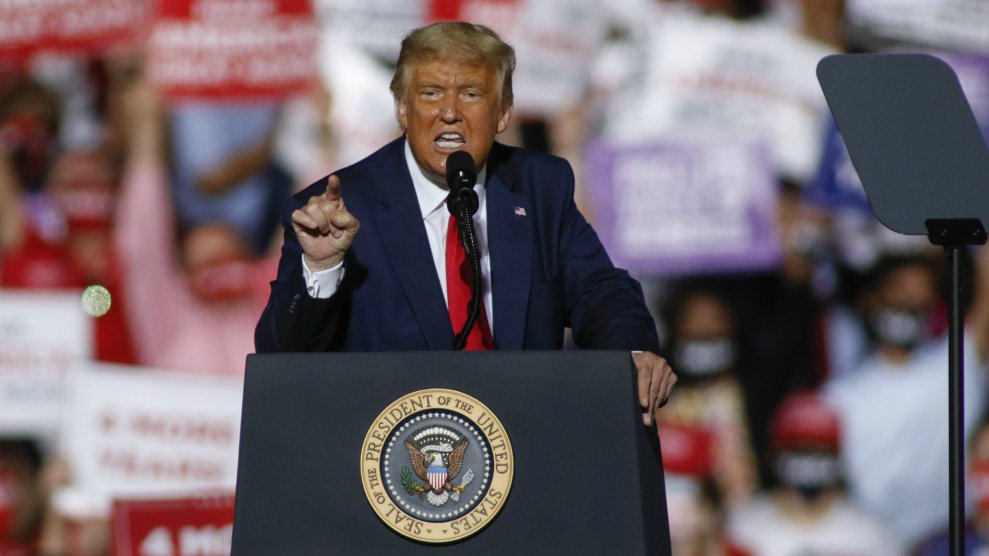
Pat Sullivan/AP
Joe Biden made history as the first president to openly oppose the death penalty, vowing on the campaign trail to push legislation to abolish the practice at the federal level.
That promise was never fulfilled, and advocates against the death penalty remain disappointed. But now with only 42 days left in office, more than 130 criminal justice reform groups are urging the president to invoke his public opposition to the death penalty by commuting federal death sentences before the incoming Trump administration attempts another execution spree.
“We know from his first term that President-elect Trump has an unprecedented extreme, cruel, and unconstitutional stance on the death penalty,” Yasmin Cader, deputy legal director at the ACLU and the director of the Trone Center for Justice and Equality, told Mother Jones. “So Biden’s actions now are critical in light of that.”
The warnings are well warranted. Trump’s first term saw more federal executions than any other president in more than a century, with his final months in office overseeing an extraordinary spree to execute 13 death row inmates. Trump also loosened federal restrictions on the death penalty and paved the way for highly contested methods of executions to be introduced, including nitrogen gas executions. Many of those executed had documented cases of intellectual disabilities and mental illnesses.
“What Trump did in his first term really shows how broken the death penalty system is,” said Cader. “It is error-prone, it is racially biased, it is a drain on public resources. It doesn’t deter crime, and it doesn’t make communities safer.”
The president-elect has made it clear that he intends to lift the Biden-era pause on federal executions during his second term. He’s also particularly focused on demanding death sentences for migrants convicted of killing US citizens.
“This kind of rhetoric threatens to drive extreme sentences in other contexts because it makes every sentence less than death seem comparatively lenient,” said Cader.
The call to action comes against a broader push for Biden to commute the sentences of those targeted by the nation’s “War on Drugs,” a longstanding movement reignited after the president pardoned his son Hunter Biden, who was convicted on federal gun charges and tax offenses. As my colleague Melvis Acosta wrote:
Hunter Biden will not spend a day inside a prison cell for his offenses; the same can’t be said for tens of thousands of people serving federal prison time because of disproportionate conviction and sentencing in the starkly racist War on Drugs. Biden can still pardon many of them, or commute their sentences—and set another, more valuable precedent.
The Biden administration is also considering preemptively pardoning individuals that Trump could potentially target once he’s sworn in, including former Rep. Liz Cheney, Dr. Anthony Fauci, and former chair of the House Intelligence Committee Adam Schiff.

















